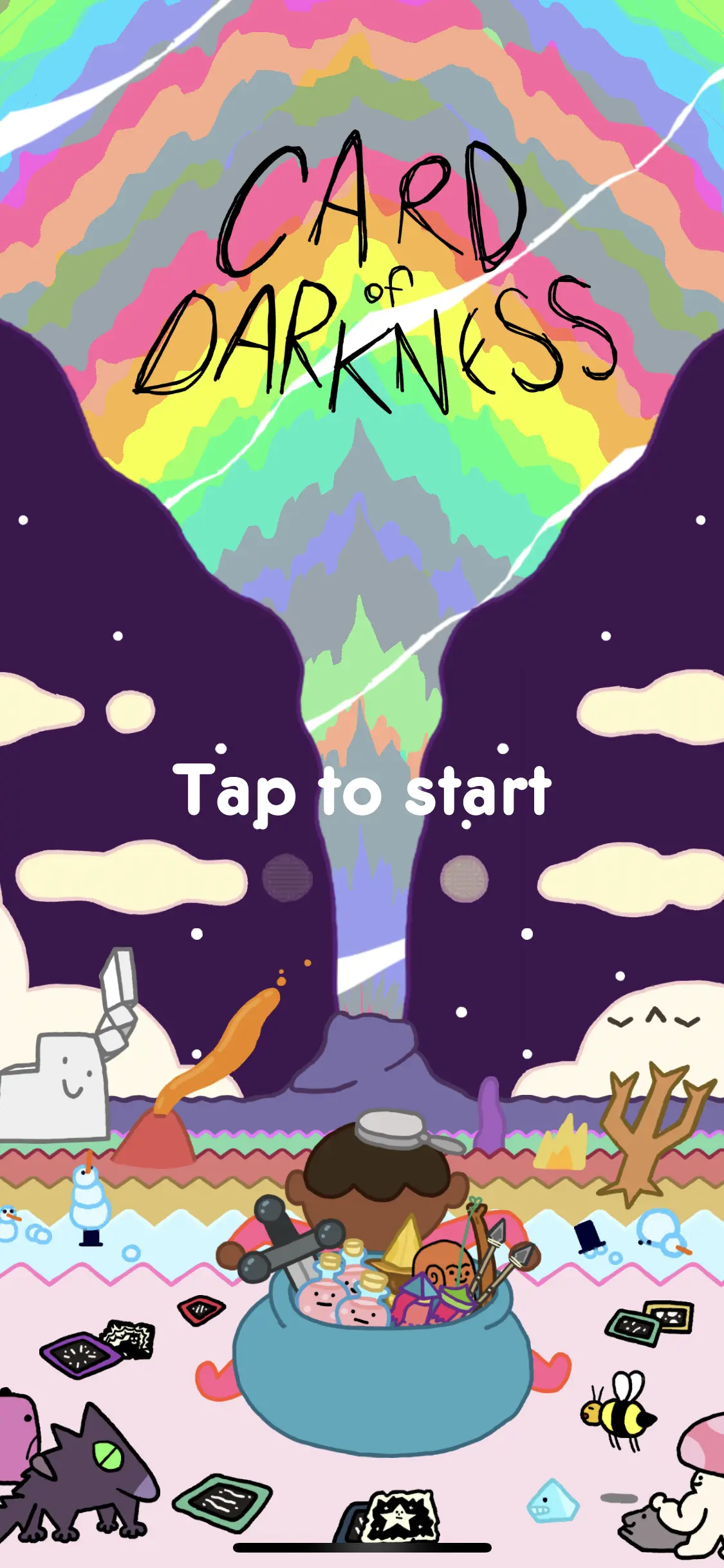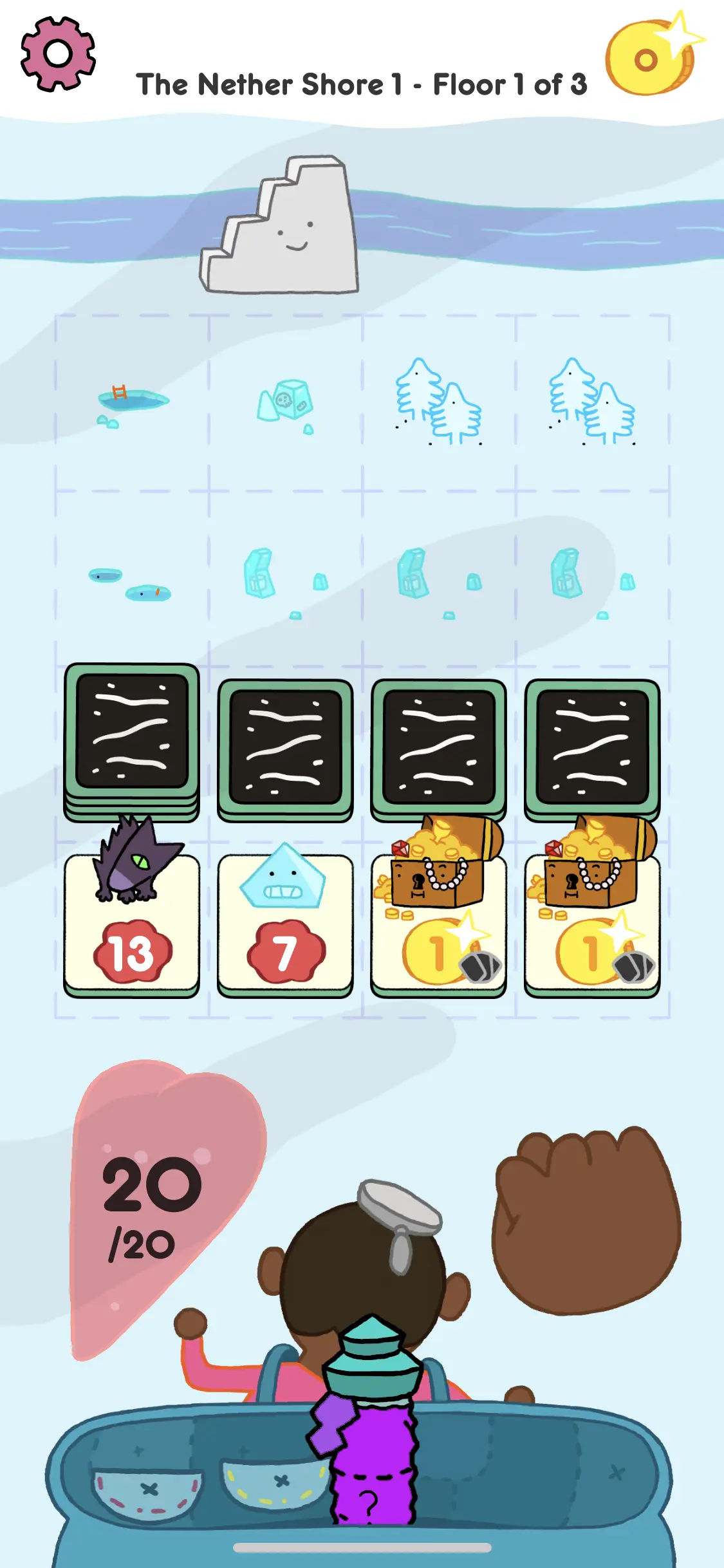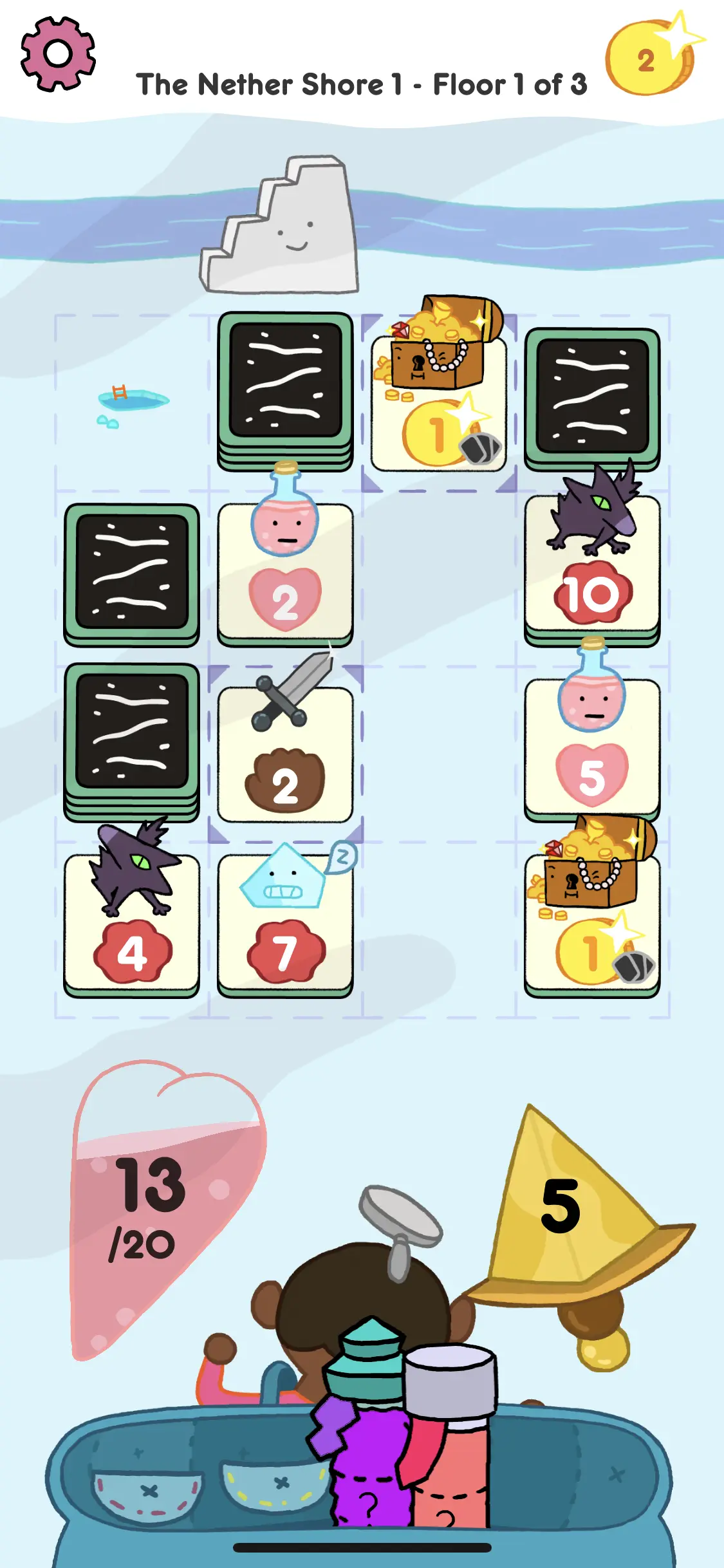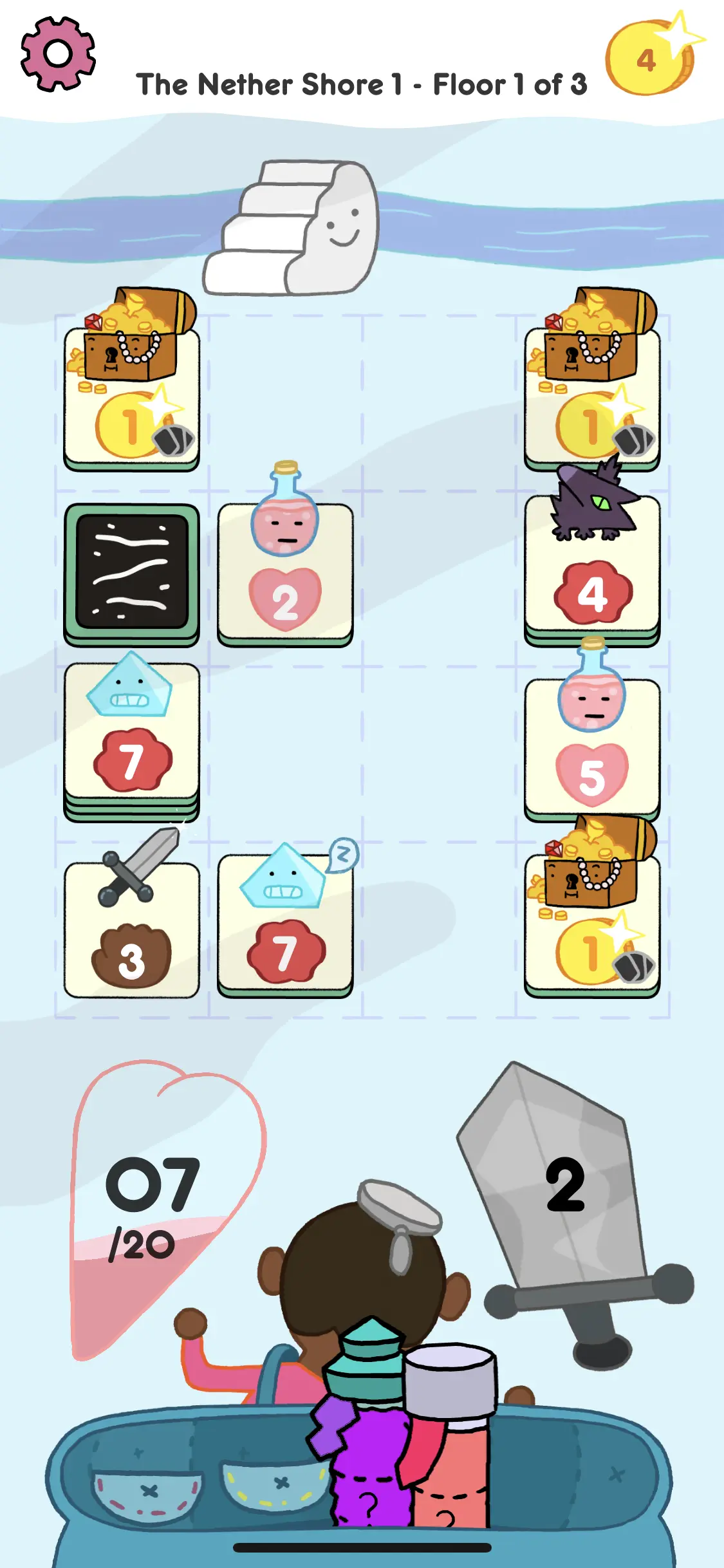by Stuart Urback

Zach Gage is one of my favorite active game designers. Whenever he releases something, it’s an immediate purchase for me. His games typically play around with a familiar gaming concept like solitaire or chess and adding his own signature twist to it. Combine that with the Pendleton Ward, creator of Adventure Time, and my expectations were through the roof.
Card of Darkness did not let me down. As a mash-up between Solitaire and an RPG, it pulls Solitaire up a level in complexity for additional challenge (and adds some fantasy elements), and makes RPGs more approachable and short.
In Card of Darkness, each level you try to clear a path from your side of the grid to the other side of the grid, by picking up cards representing equipment, potions, and enemies. Each time you pick up a card it will either deal you damage if it's an enemy, heal you if it's a potion, or equip if it's a weapon (weapons help prevent you from taking damage when you pick up an enemy). Any time you start a stack, you have to clear it before you can exit the level.

Why I Love It
In order to explain why I love Card of Darkness so much, I'm going to have to get a little bit technical, and talk about the difference between rules and algorithms.
A rule is something that dictates what you are allowed to do. An example of this might be in chess, a knight can only move in an L-shape.
An algorithm, is a decision that an AI makes in response to an action you take. An example of this might be a chess AI deciding to capture your pawn with its knight.
A traditional Solitaire game is mostly rules, an algorithm (the deck shuffle), will pick the order cards are dealt, but the game is about the player's ability to follow rules to put them into the correct order. A typical RPG is mostly algorithms, it's about the players ability to exploit the algorithm's weaknesses in order to advance. However, the algorithms that underly most RPGs can make them highly unapproachable, because they can take hours of trial and error to learn.

By bringing a lot of the concepts of RPGs - enemies with different abilities, power ups, and potions - into the concept of a solitaire game (a deck that get shuffled), Card of Darkness simplifies the concepts of an RPG - swords are cool, enemies are dangerous - into a format that is understandable, and where replays don't feel bad. If you lose a level, the computer "shuffles the deck" again for you when you restart, so you can attempt it again with a totally fresh perspective.
Getting Started
The game starts you out by quickly walking you through the rules, the goal is to clear a path in the form of piles of cards between you and the end of a level. There are 8 worlds with about 6 or so levels on each. A level can be completed in about 5-10 minutes.
Because each level is so quick, I'd encourage you to take risks and experiment with different strategies. Try clearing out a bunch of different piles to rack up gold, or sticking to only the safe path to see what works best for you. Because rounds are so quick, experimentation is fun and doesn't feel like a penalty when you get something wrong.

Going Further
Card of Darkness has an ending, which is a fact I really appreciate in the era of games that never end. It was nice to be able to see a game through to the end without feeling like I had to replay a level multiple times to get there. Each new different section has a different set of concepts that expanded my perspective on the game.
If at the end of the game, you’re excited about playing more card games on iOS (or Android), you’re in luck! I’d highly recommend classics like Card Thief, Meteorfall, and another Gage classic, FlipFlop Solitaire.
The opinions in this post are expressly the views of the author and do not reflect the views of their employer(s) or any entities that they might otherwise be affiliated.